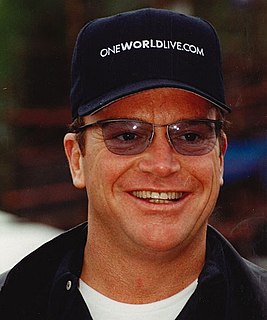A Quote by Mary Gaitskill
Whenever young writers ask me for advice, I always say you have to be able to take a lot of rejection because, unless you're very lucky, that's what's going to happen.
Related Quotes
If you're spending a lot of time in the writers' room and then you're also acting, you have your foot in both of those doors. I'd always say to the writers, "You can say whatever you want about your boss in front of me. I'm not going to think about it as my girlfriend." You've got to be able to trash your boss, in any job.
It's difficult to say no sometimes. I often hear, "They'll really take care of you," or "Someone else is going to take the role if you don't play it." Some of the best advice I ever received was to always ask myself: Am I going to kill myself if somebody else takes this role? The answer is almost always no.
When we look at a good deal of serious modern fiction, and particularly Southern fiction, we find this quality about it that is generally described, in a pejorative sense, as grotesque. Of course, I have found that anything that comes out of the South is going to be called grotesque by the Northern reader, unless it is grotesque, in which case it is going to be called realistic.... Whenever I'm asked why Southern writers particularly have a penchant for writing about freaks, I say it is because we are still able to recognize one.
I have been very lucky because I have had the opportunity to see what it's like to have little or no money and what it's like to have a lot of it. I'm lucky because people make such a big deal of it and, if I didn't experience both, I wouldn't be able to know how important it really is for me. I can't comment on what having a lot of money means to others, but I do know that for me, having a lot more money isn't a lot better than having enough to cover the basics.
I suppose whenever you go through periods of transition, or in a way, it's a very definite closing of a certain chapter of your life. I suppose those times are always going to be both very upsetting and also very exciting by the very nature because things are changing and you don't know what's going to happen.
I suppose whenever you go through periods of transition, or in a way, it's a very definite closing of a certain chapter of your life - I suppose those times are always going to be both very upsetting and also very exciting by the very nature because things are changing and you don't know what's going to happen.
I happen to be one of those lucky people who says that she's a working actor. And to always be working is very fulfilling and I'm just lucky because the opportunities just came up. And as an Asian American female actor, the opportunities have been furthering, have been widening all across the years. And I can say that there are many young people who see that the opportunities are expanding, as well as you can make it yourself.





































